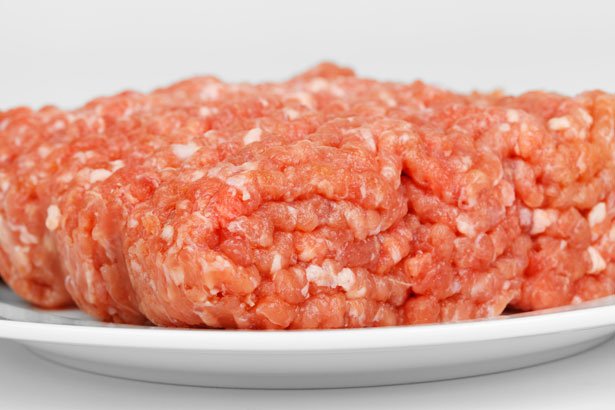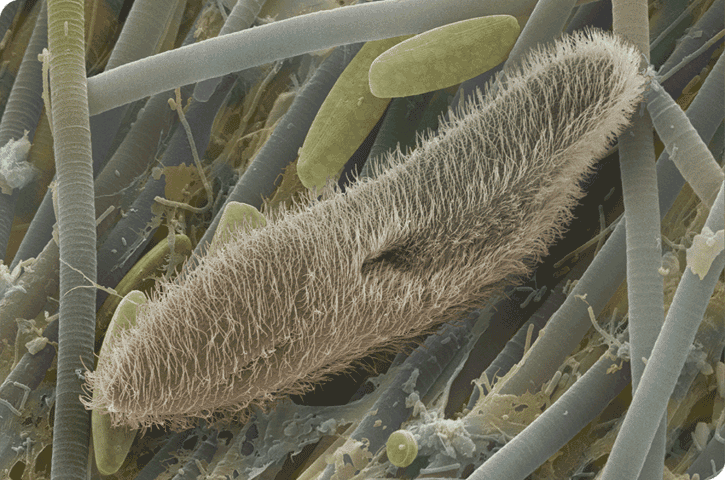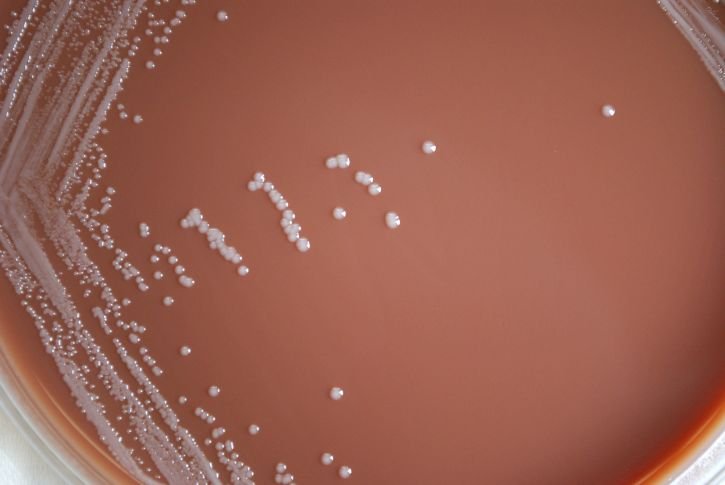Is It Ok to Eat A Warm Quivering Heart from A Dead Deer?

There is a picture floating around the net that has been stirring up a lot of controversy. Like all husbands do, I showed it to my wife to see what kind of reaction I would get out of her. Her response was not favorable. She asked why was the father, and especially the mother, allowing their young daughter to eat the heart of a recently deceased deer.
We are not the type of family that tries to project our beliefs onto others. Yet, we discussed this for awhile and ask, if we saw this, would we intervene? After all, you would think eating meat from a recently killed animal would be risky. So, the question was asked by both of us, is it ok to eat eat a warm quivering heart from a dead deer?
Bacteria and Viruses in Everyday Cooked Food.

According to the CDC,
Foodborne illness, often called food poisoning, is a common, costly—yet preventable—public health problem. Each year, about 1 in 6 Americans (or 48 million people) get sick, 128,000 are hospitalized, and 3,000 die of foodborne diseases. Learn more about foodborne illnesses and what you can do to lower your chances of getting sick. - http://www.cdc.gov/features/befoodsafe/
And yet in some developing and less hygienic countries, folks eat fully uncooked, to barely cooked meat products on a daily basis and never get sick. I personally know a family, that lives in Mexico, and eats raw meat products often. To me, it's gross but to them it's delicious. How come they never get sick?
All foods have a little dose of bacteria and viruses in them. So, when we eat it, we expose ourselves a little at a time and build a tolerance to them.
Yet, because of the food we eat is so sterile here in the US, we do not allow our bodies to build a resistances to these potentially harmful bacteria and viruses. So, when there is an outbreak, the infection can become fatal to some folks.
What is E-Coli? This bacteria normally lives in the intestines of animals and humans. Most E-coli is harmless and is an important part of the intestinal tract of a human. Yet, some E. Coli can cause illness and or death. Harmfull E. Coli can be spread by food, water, and or through contact with an infected person or animal.
What is Salmonella? This bacteria is a nasty one. Most people develop the Hershey squirts, fever, and really bad cramps around 12 to 72 hours after being exposed. The symptoms can last up to seven days. If you develop bloody poop or the pain and diarrhea becomes worse, you need to get to a hospital immediately. People have died from this infection and it's not something you can hope goes away you are pooping blood.
This is just the bacteria and viruses. Parasites is a whole other concern. Your body does not have a resistance to them. Parasites are no joke and can be found in animals both alive or dead.
Parasites That Can Infect Humans

According to the CDC,
A parasite is an organism that lives on or in a host and gets its food from or at the expense of its host. Parasites can cause disease in humans. Some parasitic diseases are easily treated and some are not. The burden of these diseases often rests on communities in the tropics and subtropics, but parasitic infections also affect people in developed countries. - http://www.cdc.gov/parasites/
Parasites are not to be taken lightly. They can infect a human body and cause damage and death. Many parasitic infections can be treated with different medical procedures and or the use of antibiotics. Some need a more aggressive approach.
There are many different types of parasites on this planet. Here is a list of the major ones that can cause infections.
Arthropod: A phylum of organisms characterized by exoskeletons and segmented bodies.
Protozoa: Single-celled animal-like microscopic organisms that must live in the presence of water.
Helminths: A variety of wormlike animals.
A family member of mine got Trichinosis, which is part of the Helminths parasites, when he was younger. He said he didn't have any symptoms and was just living his life when all of a sudden he got a seizure. That's when his health turned for the worse and his parents quickly took him to a hospital.
Later they found out that the parasite managed to get into his brain and began to cause damage. Luckily, he received treatment before it caused unrecoverable damage. He also had to take medication for year which he said he sucked. He also had to go get checkups every month which he also didn't like.
Bacteria, Viruses, and Parasites in wild animals That Can Infect Humans

Wild animals in their natural habitat are beautiful to watch. While living in Washington State, I would come across many different types of animals, including deer and elk. I once saw a massive heard of elk just chilling on a ridge of a mountain side. It was a massive amount of elk and to this day, I've never seen so many wild animals in one place.
Even though wild animals are beautiful creatures, they are, at different times of the season, filled with things that will harm a human. Extreme care should be taken when handling wild animals, dead or alive. Dont' believe me, look below.
Here is a list some parasites that a wild animal can have and can cause human infections.
Tick-borne diseases: This is a nasty one and can last for decades. Infection is transmitted through a bite from a tick and skin contact with the internal fluids of infected ticks. This disease can be fatal.
Brucella abortus: The Brucella abortus infects Bison, Elk, reindeer, and Caribou. This disease is a very serious disease for these types of animals and can infect people. People can become infected when they are cleaning the animal. Which is why I don't understand how that parent allowed their child to eat a raw heart!
Campylobacter coli: This one is a real butt hurt. It casues Campylobacteriosis in the infected person. People become ill and develop diarrhea, cramping, abdominal pain, and fever within two to five days after exposure to this nasty little bacteria.
ryptosporidium: This one-celled parasite can cause symptoms such as extreme diarrhea, along with stomach cramps, nausea, vomiting, fever, headache and decreased appetite. While waiting for a host, this parasite is protected by an outer shell. The outer shell allows it to survive outside the body for long periods of time. It also protects it from chlorine.
Echinococcus multilocularis: This tape worm infects a lot of different animals. This parasite develops in the intestines of the infected animal and then sheds eggs into the feces of the animal. Any animal or human that comes into contact with the poop can become infected.
Is it ok to eat eat a warm quivering heart from a dead deer?

After reading up on it, I would say HELL NO!! Do not, under any circumstances, eat raw meat from a recently deceased animal? Especially a deer that is wild enough to go anywhere it wants to, eat whatever it wants to, and become exposed to whatever it comes in contact with.
After researching this, I am upset at the picture of the little girl who is eating the "warm quivering heart" of a deer. She could now be carrying things that are going to damage her. All because her dad wanted to be proud of her. Seriously, she had to kill an animal, eat the heart, in order for you to be proud of her? Couldn't you have, I don't know, just be proud her for the sake of being proud of your kid?
Thank you for taking the time to read this. After researching up on this, I felt compelled to write something about it. If you like what you read, please hit that upvote button, write down a comment, and share this on Twitter.
Photo Sources: cdn0.dailydot.com | upload.wikimedia.org | publicdomainpictures.net
Researched Sources: encyclopedia.com | avma.org | ncbi.nlm.nih.gov | cdc.gov | qdma.com
It seems a scene from a movie, "Captain Fantastic", with Viggo Mortensen. In the movie, this father leads his little kid to hunt and then, he makes his little boy to eat a deer heart...